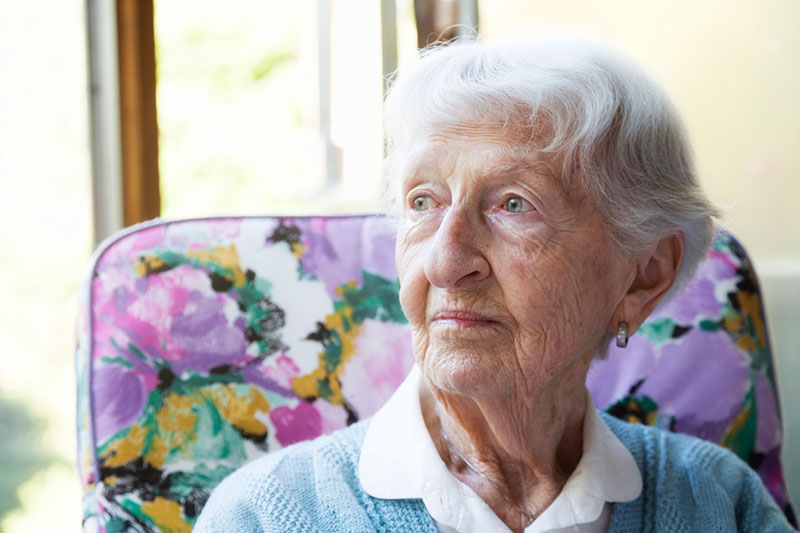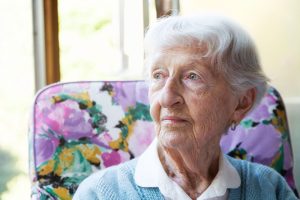

Clinical depression and dementia share some similar symptoms, but there are key differences as well.
Visiting with Mom recently brought to light a number of concerning signs. While she’s always been up at the crack of dawn, now it’s hard to wake her before noon. Instead of preparing an elaborate home-cooked meal, she would rather simply warm up a can of soup; and can barely finish a small bowlful. Furthermore, she has lost interest in enjoying time with her best friends from church. Might she be experiencing clinical depression or dementia?
There are a few similarities between the two, like:
- Sleeping and eating pattern changes
- A lack of interest in previously enjoyed interests and hobbies, and spending time with family and friends
- A decrease in memory and the ability to focus
However, there are also a variety of telltale differences to help identify whether depression or dementia could be at play:
Dementia:
-
- A slow, progressive decline in mental functioning
- Noticeable difficulties with motor and/or language skills
- Challenges with memory, although the person is unaware of these problems
- Confusion in knowing the present date, time, and environment
Clinical Depression:
-
- A faster decline in mental functioning
- Difficulties with concentrating
- Slightly slower, but still normal motor and language functioning
- Struggling with memory issues, but being aware of the struggle
- Awareness of correct date, time and environment
At times, both conditions can impact a person concurrently. Brent Forester, MD, director of the mood disorders division in the geriatric psychiatry research program at McLean Hospital in Belmont, MA, shares, “40 to 50% of people with Alzheimer’s disease get depression, but depression also may be a risk factor for Alzheimer’s.”
If you suspect either depression or dementia in an aging loved one, schedule an appointment as soon as possible with his or her doctor. Obtaining a correct diagnosis and beginning a treatment plan is imperative.
Assistance for clinical depression might include an antidepressant combined with therapeutic counseling, or hospitalization if the symptoms are severe and warrant more in-depth treatment. Dementia care usually involves medications that help with particular symptoms, such as sleep problems, memory loss, or changes in behavior.
If someone you love has been diagnosed with either depression or dementia, or is struggling with any other challenges of aging, Endeavor In Home Care, the leading Scottsdale caregiving company, can help. With our full variety of senior home care services, such as companionship, meal preparation, running errands, household chores, transportation, and personal care services, we’re here for whatever particular needs your loved one is facing. Call us at (480) 498-2324 to learn more and to find out if our services are available in your area.


